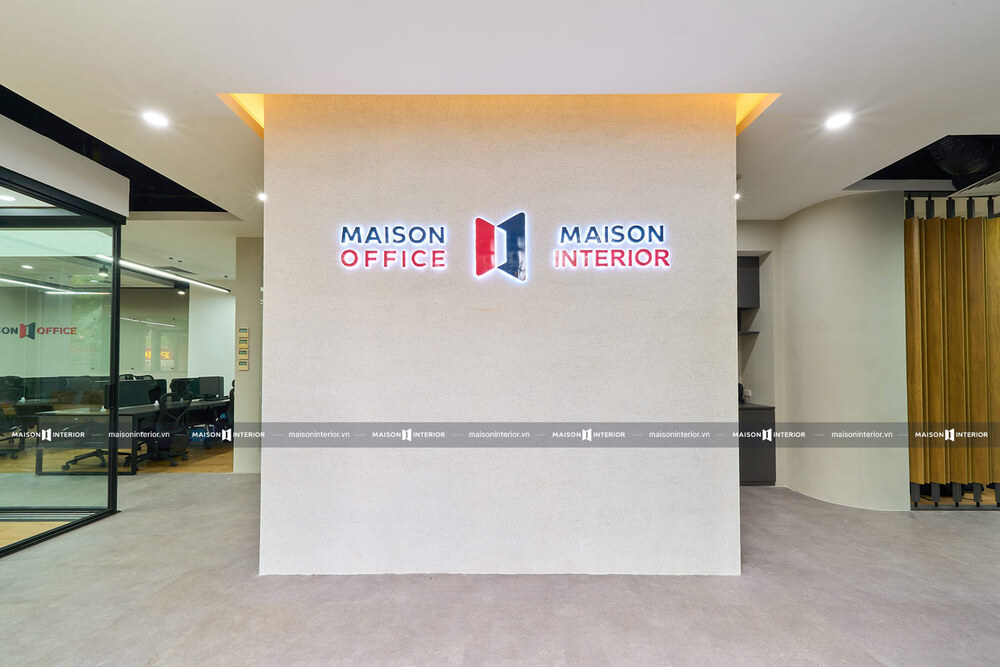Vietnam IRC: Step-by-step guide for foreign investors

For foreign investors planning to establish a business in Vietnam, obtaining an Investment Registration Certificate (IRC) is a mandatory legal step. This guide provides a clear, step-by-step overview of the IRC process, required documents, timelines, and practical tips to help you navigate regulatory procedures with confidence.
Table of Contents
- What is the Investment Registration Certificate (IRC) in Vietnam?
- Who needs to obtain an IRC in Vietnam?
- Step-by-step process to apply for an IRC
- Documents required for IRC Application
- What is the difference between IRC and ERC in Vietnam?
- IRC Vietnam: Timeline, Fees & Expert tips (2026)
- FAQs about Investment Registration Certificate in Vietnam
What is the Investment Registration Certificate (IRC) in Vietnam?
The Investment Registration Certificate (IRC) is an official document issued by the Vietnamese government to foreign investors, permitting them to implement an investment project in Vietnam. It is regulated under the Law on Investment 2020 and serves as the first legal step in establishing a foreign-invested enterprise (FIE).

The IRC is issued by either the Department of Planning and Investment (DPI) at the provincial level or by a Management Authority of Industrial Zones or Economic Zones, depending on the location and nature of the investment. This certificate confirms that the investment project has been reviewed and approved by the competent authority, in accordance with Vietnamese law and sector-specific regulations.
Key details recorded in the IRC typically include:
- Name and code of the investment project
- Legal information of the foreign investor(s)
- Objectives, scale, and business lines of the project
- Total investment capital (including equity and loans)
- Implementation schedule and duration of the project
- Project location and area of land or office space used
- Investment incentives or special conditions (if any)
According to current law, foreign investors must apply for and obtain an IRC prior to company incorporation if they fall under specific categories—such as establishing a 100% foreign-owned company, owning more than 50% of capital in a Vietnamese entity, or engaging in conditional sectors restricted to foreign ownership.

Who needs to obtain an IRC in Vietnam?
Under the current Law on Investment, not all business activities in Vietnam require an Investment Registration Certificate (IRC). However, for foreign investors, the IRC is mandatory in most cases—particularly when establishing a new commercial presence or when their level of control in a Vietnamese company crosses certain thresholds.

Below are the primary categories of investors and entities that must apply for an IRC.
Foreign investors establishing new companies
Foreign individuals or corporate investors planning to set up a new business entity in Vietnam are required to obtain an Investment Registration Certificate (IRC) before they can register the enterprise. This requirement applies to a wide range of business forms and sectors, particularly those falling under the list of conditional business lines for foreign investors as regulated in Vietnam’s Law on Investment 2020.

Types of businesses that require an IRC:
- Wholly foreign-owned enterprises (100% FDI): Companies in which foreign investors hold 100% of the charter capital.
- Joint venture enterprises: Companies where foreign and Vietnamese investors jointly contribute capital.
- Business cooperation contracts (BCCs): Projects involving contractual partnerships without establishing a legal entity.

Why is an IRC required before company registration?
The Vietnamese government applies a two-layered licensing framework for foreign investment:
- Investment licensing (IRC): Assesses the viability, compliance, and impact of the investment project.
- Enterprise licensing (ERC): Establishes the business as a legal entity with full operating rights.

Foreign ownership above 50% in local companies
According to the Law on Investment 2020, an Investment Registration Certificate (IRC) is required not only for newly established foreign-invested companies but also in cases where foreign investors acquire over 50% ownership in existing Vietnamese enterprises.
Definition of Foreign-controlled enterprises
A Vietnamese company is considered foreign-controlled when one or more foreign investors:
- Directly hold more than 50% of the charter capital, or
- Hold the majority voting rights in the company’s decision-making process, or
- Indirectly control the enterprise through another entity (i.e., a chain of subsidiaries)

In these cases, any new investment activity initiated by the company must be registered through the IRC process
When is IRC required after acquisition?
If a foreign investor acquires more than 50% of the capital of a local Vietnamese company, two scenarios arise:
- For existing business activities: The company may continue operations without an IRC, provided there is no substantial change to the project.
- For new investment activities: The investor must apply for an IRC to register the new project or expansion under foreign-invested status.

Common cases triggering IRC requirements:
- Foreign investor buys shares exceeding 50% in a local company
- Vietnamese company becomes majority-owned by a foreign-invested enterprise
Cross-border M&A transactions involving foreign entities - Capital restructuring leading to foreign control
For example, if a foreign logistics group acquires a 60% stake in a Vietnamese transportation company to expand its Southeast Asia network, the resulting entity will be considered a foreign-invested enterprise and must apply for an IRC if it launches new projects, branches, or subsidiaries in Vietnam.
Legal basis and implications
This provision is outlined in Articles 23 and 24 of the Law on Investment (2020), and is reinforced by guidelines from the Ministry of Planning and Investment (MPI). Foreign investors must carefully assess equity structures and business plans to determine whether their transaction triggers IRC obligations.

Failing to obtain an IRC in such cases can result in:
- Administrative penalties for unauthorized investment
- Delays in tax registration and licensing
- Invalidation of contracts involving land, labor, or financial services
When foreign investors hold more than 50% of capital in a Vietnamese company, the enterprise is legally classified as a foreign-invested entity. As a result, any new business activity or expansion undertaken by the company must be registered through the IRC process to ensure full compliance with Vietnam’s investment regulations.
Organizations under foreign control
Vietnamese law extends IRC obligations beyond direct foreign investors to cover Vietnamese legal entities that are indirectly controlled by foreign investors. These entities are often structured as local companies but have a foreign ownership trail, and are therefore legally required to register new investment activities under the foreign-invested framework.

What qualifies as foreign control?
Under Article 23 of the Law on Investment 2020, a Vietnamese enterprise is considered under foreign control if:
- It is owned by a foreign investor or foreign-invested entity holding more than 50% of charter capital, or
- The majority of its members/shareholders are foreign entities, or
- It is controlled via indirect ownership (e.g., through a parent company or affiliated group)
This applies even if the company is registered as a Vietnamese legal entity, operates under a local name, or has a Vietnamese legal representative.
When does this trigger the IRC requirement?
Once a company is deemed under foreign control, any new investment project, business expansion, or establishment of new branches must be registered through the Investment Registration Certificate (IRC) process—even though the company is technically “Vietnamese” on paper.

This includes:
- Opening a new office or factory
- Adding new business lines or revenue-generating activities
- Acquiring land or entering long-term lease agreements
- Applying for tax, customs, or import-export privileges under FDI regulations
Legal and practical implications
This provision aims to close regulatory loopholes where foreign investors might use a series of “Vietnamese shell companies” to bypass IRC requirements. Authorities now look at substantive ownership and control, not just the nationality stated in business registration documents.

In practice, many foreign groups establish a Vietnam-based subsidiary (company A), which then owns another local entity (company B). If company A is foreign-invested, then company B also becomes subject to IRC obligations when conducting new projects.
Failure to recognize this control structure can lead to:
- Delays in investment licensing
- Regulatory fines
- Risk of retroactive invalidation of project approvals
Companies registered in Vietnam but indirectly controlled by foreign investors—through ownership chains or majority voting rights—are still subject to IRC requirements under Vietnamese law. This ensures transparency and regulatory oversight of all foreign-influenced investment activities, regardless of how the control is structured.
Step-by-step process to apply for an IRC
Applying for an Investment Registration Certificate (IRC) is a fundamental legal step for most foreign investors before incorporating a company or implementing an investment project in Vietnam. While the process has been significantly streamlined over recent years, foreign applicants must still navigate a multi-stage procedure involving legal documentation, government approvals, and potential regulatory reviews.

Below is the standard 3-step process to apply for an IRC, based on Vietnam’s Law on Investment 2020 and practical experience from successful FDI projects:
Step 1: Prepare required documents
The first step in obtaining an Investment Registration Certificate (IRC) in Vietnam is to prepare a complete and accurate set of application documents. Proper documentation is crucial to avoid delays during the licensing process.

According to the Law on Investment 2020 and practical guidelines from the Ministry of Planning and Investment (MPI), a standard IRC application dossier should include:
Application form for investment project registration (using MPI’s prescribed template)
- Legal documents of the investor: notarized passport for individuals or legalized Certific
- Proof of financial capacity: recent bank statements, audited financial reports, or capital commitment letters
- Project proposal: detailing business objectives, capital structure, location, timeline, and revenue expectations
Valid office lease contract: the registered address must comply with legal and commercial use requirements - Legal documents of the company’s legal representative in Vietnam (if applicable)
- Additional approvals for conditional sectors or projects requiring environmental/social impact assessments
The business address stated in the IRC must match a commercially zoned office, not a residential property. Using ineligible locations is one of the most frequent causes of application rejection.
Step 2: Submit application via national investment portal
After preparing all required documents, foreign investors must submit their IRC application through both online and offline channels. This dual submission ensures that the project is registered digitally while complying with official licensing procedures.

Online submission via National Investment Information Portal
Through this portal, investors must:
- Create an account or authorize a licensed legal representative
- Upload digital copies of all documents (PDF format)
- Complete the online application form
- Track processing status in real time
Once submitted online, the system will issue a registration code for reference throughout the licensing process.
Physical submission at the local authority
Within 3 working days of submitting online, the investor (or their authorized agent) must deliver a hard copy of the complete dossier to the competent authority:
- Department of Planning and Investment (DPI) of the province/city where the project is located
- Or the Management Authority of Industrial or Export Processing Zones, if the project is inside a zone

Submission confirmation and waiting period
If the application is complete and complies with all regulatory requirements, the licensing authority will begin reviewing the project dossier. From this point, the standard processing time is 15 working days, as stipulated under Article 38, Law on Investment 2020.
Many cases have encountered delays due to:
- Uploading incomplete or unsigned PDF files on the e-portal
- Using personal email accounts instead of official company emails
- Not submitting physical copies within the required timeframe
Once the application dossier has been fully submitted and validated, the Department of Planning and Investment (DPI) or the relevant Industrial/Economic Zone Authority will proceed with the review and decision-making process.

Standard processing timeline
As stipulated in Article 38 of the Law on Investment 2020, the licensing authority is required to issue the Investment Registration Certificate (IRC) within 15 working days from the date of receiving a complete and valid application.

However, actual processing time may vary depending on:
- Project scale and capital structure
- Business sector (especially if conditional or sensitive)
- Whether approvals from other ministries are required
- Completeness and clarity of documents submitted
In straightforward cases (e.g. non-conditional business lines, 100% foreign ownership, commercial lease in compliant office buildings), IRC issuance may take 7–10 working days.
Mode of delivery and what to check
The IRC is issued as an official printed certificate, signed and sealed by the licensing authority. It will include:
- Name and code of the investment project
- Name and legal status of the investor
- Total registered investment capital
- Location and implementation duration
- List of business activities
- Applicable investment incentives or conditions (if any)
Upon receipt, the investor should:
- Double-check that all project information matches the submitted documents
- Confirm the registered address and business sectors are correct
- Ensure that the project code is issued (used for tax and post-licensing steps)
If the project is located inside a special economic zone, export processing zone, or hi-tech park, the Zone Management Board will issue the IRC instead of the provincial DPI. These authorities often have sector-specific review criteria and may apply stricter scrutiny for foreign projects in logistics, manufacturing, and technology.

Documents required for IRC Application
To legally obtain an Investment Registration Certificate (IRC) in Vietnam, foreign investors must prepare a complete and properly legalized set of documents.
| Document type | Description | Notes |
| Application form | Standard form issued by MPI or DPI, summarizing project details, location, capital, and business lines | Must be completed in Vietnamese |
| Investor’s legal documents | – Individual: notarized passport
– Company: legalized certificate of incorporation |
Foreign docs must be consular legalized & translated |
| Proof of financial capacity | Bank statements, audited financials, or capital contribution agreements | Demonstrates ability to fund the project |
| Investment project proposal | Includes business objectives, timeline, capital structure, and projected performance | Required for almost all sectors |
| Office lease agreement | Valid lease contract for registered business address in a commercial-zoned building | Residential addresses are not accepted |
| Legal representative documents | Passport or ID of the legal rep, Power of Attorney (if applicable) | Needed if applying via authorized agency |
| Sector-specific approvals | For conditional sectors: approvals from ministries (MOIT, MOH, MOF…) | Varies depending on industry |
| Environmental or land documents | Environmental Impact Assessment (EIA), land-use rights certificate (if required) | Only for real estate, manufacturing, or regulated industries |
Incomplete documentation is one of the most common causes of delays or denials in the licensing process, so document preparation is extremely important.
What is the difference between IRC and ERC in Vietnam?
While both the IRC and ERC are essential legal documents in Vietnam’s investment framework, they serve distinct purposes and are issued at different stages of the business setup process. Understanding their differences is crucial for ensuring regulatory compliance and avoiding procedural delays.

| Criteria | IRC (Investment Registration Certificate) | ERC (Enterprise Registration Certificate) |
| Purpose | Approves the investment project | Registers the business as a legal entity |
| Issued by | Department of Planning and Investment (DPI) or Zone Authority | Business Registration Office under DPI |
| Target audience | Foreign investors (FDI) or foreign-controlled enterprises | All businesses (local or foreign) |
| When required | Before company incorporation (if foreign ownership or conditional sector applies) | After obtaining IRC (for foreign investors) or directly (for Vietnamese enterprises) |
| Legal basis | Law on Investment 2020 (Article 38) | Law on Enterprises 2020 |
| Key contents | – Project name and code
– Capital & timeline – Investor details – Business scope |
– Company name
– Head office address – Legal rep – Charter capital – Business sectors |
| Processing time | 10–15 working days (standard) | 3–7 working days |
| Validity | Project-specific; applicable per project duration | Unlimited, unless revoked or dissolved |
| Required for | Most foreign-invested projects (>50% foreign ownership or conditional sectors) | All businesses operating in Vietnam |
| Next legal step | Apply for ERC after IRC issuance | Start business operations, tax registration, bank accounts, etc. |
IRC Vietnam: Timeline, Fees & Expert tips (2026)
Understanding the expected timeline and associated costs of obtaining an Investment Registration Certificate (IRC) in Vietnam is essential for foreign investors looking to plan efficiently and avoid unexpected delays. While the process has become more streamlined, variations still exist based on project type, business sector, and location.

Standard timeline for IRC issuance
The duration of IRC processing may vary based on the project’s complexity and regulatory requirements. However, there is a standard expected timeline investors can use to plan ahead.
| Stage | Timeframe (Working Days) |
| Document preparation | 3–7 days (varies based on investor readiness) |
| Application review by DPI or Zone authority | 15 days (per Law on Investment 2020 – Article 38) |
| Total estimated time to receive IRC | 10–20 working days (standard) |
Projects in conditional sectors (e.g. fintech, logistics, education, healthcare) may require additional 5–10 working days for ministerial approval.
IRC application costs (2026 estimate)
While government fees are relatively low, the total cost of obtaining an IRC includes legal services, document legalization, and translation. Below is a breakdown of common cost components in 2026.
| Cost component | Estimated range (USD) |
| Government licensing fees | $20 – $100 (depending on locality) |
| Notarization, translation & consular legalization | $100 – $300 (depends on origin country & document volume) |
| Legal consultancy or incorporation service | $500 – $2,000 (optional but recommended) |
| Total estimated cost | $700 – $2,500+ |
However at Maison Office, customers using our full-package office and establishment services often save 20-30% of time and costs by simplifying the legal due diligence and paperwork stages.

Factors that may affect IRC timeline or cost
Beyond standard procedures, several variables can significantly impact how long it takes to receive the IRC and how much it costs. Investors should be aware of these practical factors to avoid delays or budget overruns:
- Type of business activity (conditional vs. non-conditional sectors)
- Location of the project (inside vs. outside industrial zones)
- Whether the foreign investor is an individual or corporate entity
- Complexity of ownership structure (e.g. cross-border parent-subsidiary model)
- Validity and commercial eligibility of the office lease contract
Expert tips from practice
From Maison Office’s experience supporting 300+ foreign clients since 2021, here are proven recommendations:
- Use a registered commercial office for the IRC address. Residential or virtual offices are often rejected.
- Pre-legalize documents in the investor’s home country before arriving in Vietnam.
- Work with a bilingual legal consultant familiar with the local DPI in Hanoi or Ho Chi Minh City—processing style can differ by location.
- Allow buffer time: Always plan for a 2–3 week margin, especially if your business line involves cross-ministry approval (e.g. fintech, media, education).
Maison Office combines local legal insight and office leasing expertise to help foreign investors avoid delays, reduce costs, and meet compliance from day one. So let’s contact us today for a free consultation on securing a compliant registered address and full IRC support in Hanoi or Ho Chi Minh City.

FAQs about Investment Registration Certificate in Vietnam
Is IRC required for 100% foreign-owned companies?
Yes. Any company with 100% foreign ownership must obtain an Investment Registration Certificate (IRC) before applying for an Enterprise Registration Certificate (ERC). This applies regardless of the business sector, except for rare exempted cases (e.g., acquisition without control).
Can I register remotely from overseas?
Yes, but only through a legally authorized representative in Vietnam. The investor must provide a notarized and consular legalized Power of Attorney (PoA) and prepare all required documents in advance. Digital submission via the National Investment Portal is available, but physical submission must still be handled locally.
Is serviced office address accepted for IRC?
Yes, serviced offices or shared offices are generally accepted if the building is zoned for commercial use and the lease is valid. However, addresses in residential apartments or virtual-only spaces are usually rejected by the DPI. Maison Office recommends choosing Grade B or A office buildings to ensure compliance.
What happens after receiving IRC?
Once the IRC is issued, the investor must proceed to:
- Apply for the Enterprise Registration Certificate (ERC)
- Register a tax code and corporate seal
- Open a capital bank account
- Contribute the charter capital within 90 days
- Begin reporting activities to the DPI and tax authority
The Investment Registration Certificate (IRC) is a critical first step for foreign investors establishing a business in Vietnam. By understanding the legal requirements, preparing compliant documents, and selecting the right local partners, you can streamline the licensing process and minimize risks. For tailored support and a compliant registered address, reach out to Maison Office — your trusted partner in FDI success.




